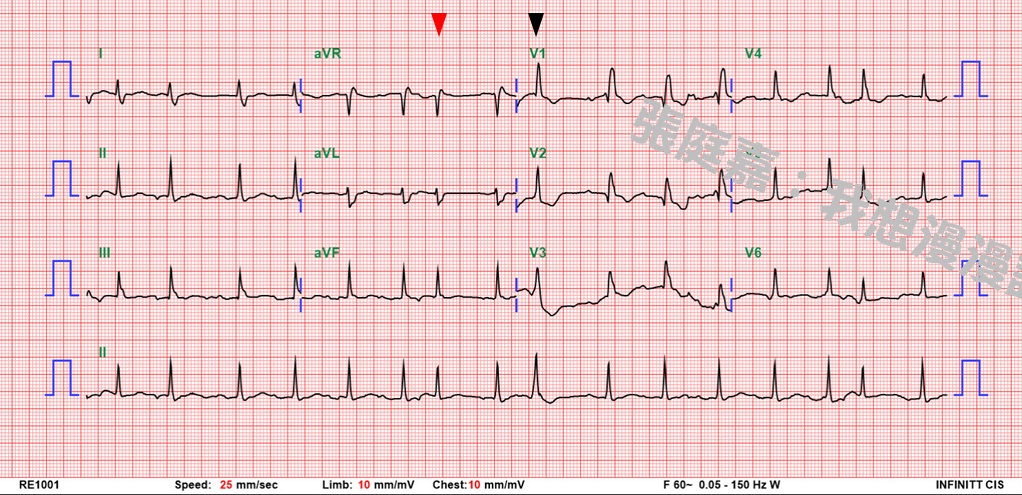肺癌的標靶治療系列之二:標靶治療也有抗藥性?
針對非小細胞癌EGFR突變常見的exon 19 deletion及exon 21 Leu858Arg (L858R)突變,標靶藥物EGFR TKI是十足有效的武器。
使用第一代標靶藥物gefitinib (Iressa)、erlotinib (Tarceva)、第二代afatinib (Giotrif)治療,反應率可達8成,無惡化存活期(progression-free survival, PFS)可達10-14個月。[1-2]
其中exon 19及exon 21的突變佔8成。[3-4]
延伸閱讀 肺癌的標靶治療系列之一:肺癌可怕嗎?
2. Wu YL, Zhou C, Hu CP, Feng J, Lu S, Huang Y, Li W, Hou M, Shi JH, Lee KY, et al. Afatinib versus cisplatin plus gemcitabine for first-line treatment of Asian patients with advanced non-small-cell lung cancer harbouring EGFR mutations (LUX-lung 6): an open-label, randomised phase 3 trial. Lancet Oncol. 2014;15:213–22.
3. Lynch TJ, Bell DW, Sordella R, Gurubhagavatula S, Okimoto RA, Brannigan BW, Harris PL, Haserlat SM, Supko JG, Haluska FG, et al. Activating mutations in the epidermal growth factor receptor underlying responsiveness of non-small-cell lung cancer to gefitinib. N Engl J Med. 2004;350:2129–39.
4. Paez JG, Janne PA, Lee JC, Tracy S, Greulich H, Gabriel S, Herman P, Kaye FJ, Lindeman N, Boggon TJ, et al. EGFR mutations in lung cancer: correlation with clinical response to gefitinib therapy. Science. 2004;304:1497–500.
5. Kobayashi S, Boggon TJ, Dayaram T, Janne PA, Kocher O, Meyerson M, Johnson BE, Eck MJ, Tenen DG, Halmos B. EGFR mutation and resistance of non-small-cell lung cancer to gefitinib. N Engl J Med. 2005;352:786–92.
使用第一代標靶藥物gefitinib (Iressa)、erlotinib (Tarceva)、第二代afatinib (Giotrif)治療,反應率可達8成,無惡化存活期(progression-free survival, PFS)可達10-14個月。[1-2]
其中exon 19及exon 21的突變佔8成。[3-4]
作者:張庭嘉
使用標靶藥物一年以後,多數病人仍會面對疾病惡化,原因是肺癌細胞經過標靶治療篩選出具有抗藥性的腫瘤細胞。
產生抗藥性的機轉許多,其中眾所周知的就是exon 20的T790M突變,半數具抗藥性的腫瘤細胞原因都是EGFR產生T790M突變。[5]
產生抗藥性的機轉許多,其中眾所周知的就是exon 20的T790M突變,半數具抗藥性的腫瘤細胞原因都是EGFR產生T790M突變。[5]
 |
| EGFR突變示意圖(舉例:L858R) |
第二代TKI因為其副作用較多的關係,抵消了原本對於它能夠抵抗T790M的期待[6];
其重責大任留待第三代TKI,當然使用第三代TKI者產生抗藥性的機轉就不太一樣。
有學者將使用TKI治療後惡化分類成: oligo-progression (少處惡化)、systemic progression (多處惡化)及CNS sanctuary progression (包含leptomeningeal carcinomatosis、少有效治療方法) [7]。
也有人將其分成dramatic progression、gradual progression、local progression,其預後當然是gradual progression最好(OS: 39.4 months),dramatic progression最差(OS: 17.7 months);
倘若病人為gradual progression者,持續使用TKI會比改化療要好,一旦惡化改用化學治療,OS反而剩17.8個月而已[8]。
EGFR TKI產生抗藥性機轉
常見後天造成的抗藥性機轉有三種,如下說明:
標的基因改變
在其第20外顯子上,產生T790M點突變,在第790個胺基酸位置上Methionine被取代為Threonine,它會影響ATP-kinase pocket與EGFR TKI結合的親和力。其他的突變點包括D761Y、T854A、L747S。
替代路徑
在原先路徑被抑制的情況下,癌細胞透過其他替代路徑,比如MET致癌基因過度表現,其佔了TKI產生抗藥性的比例5-10% [9]。
其他路徑還有HER2、PIK3CA、BRAF等。
組織表現型態改變
惡化後的第二線治療(Switch therapy)
根據新版NCCN治療指引建議,在systemic progression情況下,如果沒有T790M突變(無法用第三代TKI),則要考慮免疫療法或化學治療。
化學治療的組合以含鉑劑之合併化療(platinum doublet)為主,可考慮加上抑制血管生成藥物(bevacizumab, Avastin)作為第二線治療。
其反應率約一至二成,PFS的中位數為4個月。[11]
如為非鱗狀細胞肺癌,其中一種懶人打法為platinum加上pemetrexed (Alimta),穩定或有效的話,維持治療就繼續用pemetrexed。[12]
延伸閱讀 肺癌的標靶治療系列之一:肺癌可怕嗎?
參考資料
1. Mok TS, Wu Y-L, Thongprasert S, Yang C-H, Chu D-T, Saijo N, Sunpaweravong P, Han B, Margono B, Ichinose Y, et al. Gefitinib or carboplatin–paclitaxel in pulmonary adenocarcinoma. N Engl J Med. 2009;361:947–57.2. Wu YL, Zhou C, Hu CP, Feng J, Lu S, Huang Y, Li W, Hou M, Shi JH, Lee KY, et al. Afatinib versus cisplatin plus gemcitabine for first-line treatment of Asian patients with advanced non-small-cell lung cancer harbouring EGFR mutations (LUX-lung 6): an open-label, randomised phase 3 trial. Lancet Oncol. 2014;15:213–22.
3. Lynch TJ, Bell DW, Sordella R, Gurubhagavatula S, Okimoto RA, Brannigan BW, Harris PL, Haserlat SM, Supko JG, Haluska FG, et al. Activating mutations in the epidermal growth factor receptor underlying responsiveness of non-small-cell lung cancer to gefitinib. N Engl J Med. 2004;350:2129–39.
4. Paez JG, Janne PA, Lee JC, Tracy S, Greulich H, Gabriel S, Herman P, Kaye FJ, Lindeman N, Boggon TJ, et al. EGFR mutations in lung cancer: correlation with clinical response to gefitinib therapy. Science. 2004;304:1497–500.
5. Kobayashi S, Boggon TJ, Dayaram T, Janne PA, Kocher O, Meyerson M, Johnson BE, Eck MJ, Tenen DG, Halmos B. EGFR mutation and resistance of non-small-cell lung cancer to gefitinib. N Engl J Med. 2005;352:786–92.
6. Kwak EL, Sordella R, Bell DW, Godin-Heymann N, Okimoto RA, Brannigan BW, Harris PL, Driscoll DR, Fidias P, Lynch TJ, et al. Irreversible inhibitors of the EGF receptor may circumvent acquired resistance to gefitinib. Proc Natl Acad Sci U S A. 2005;102:7665–70.
7. Gandara DR, Li T, Lara PN, Kelly K, Riess JW, Redman MW, Mack PC. Acquired resistance to targeted therapies against oncogene-driven non–small-cell lung cancer: approach to subtyping progressive disease and clinical implications. Clinical Lung Cancer. 15:1–6.
8. Yang J-J, Chen H-J, Yan H-H, Zhang X-C, Zhou Q, Su J, Wang Z, Xu C-R, Huang Y-S, Wang B-C, et al. Clinical modes of EGFR tyrosine kinase inhibitor failure and subsequent management in advanced non-small cell lung cancer. Lung Cancer. 2013;79:33–9.
9. Yu HA, Arcila ME, Rekhtman N, Sima CS, Zakowski MF, Pao W, Kris MG, Miller VA, Ladanyi M, Riely GJ. Analysis of tumor specimens at the time of acquired resistance to EGFR-TKI therapy in 155 patients with EGFR-mutant lung cancers. Clin Cancer Res. 2013;19:2240–7.
10. Lee JK, Lee J, Kim S, Kim S, Youk J, Park S, An Y, Keam B, Kim DW, Heo DS, et al. Clonal history and genetic predictors of transformation into small-cell carcinomas from lung adenocarcinomas. J Clin Oncol. 2017;35:3065–74.Return to ref 40 in article
11. Goldberg SB, Oxnard GR, Digumarthy S, Muzikansky A, Jackman DM, Lennes IT, Sequist LV. Chemotherapy with Erlotinib or chemotherapy alone in advanced non-small cell lung cancer with acquired resistance to EGFR tyrosine kinase inhibitors. Oncologist. 2013;18:1214–20.
12. Paz-Ares LG, Marinis Fd DM, Thomas M, Pujol JL, Bidoli P, Molinier O, Sahoo TP, Laack E, Reck M, et al. PARAMOUNT: final overall survival results of the phase III study of maintenance Pemetrexed versus placebo immediately after induction treatment with Pemetrexed plus cisplatin for advanced nonsquamous non–small-cell lung cancer. J Clin Oncol. 2013;31:2895–902.



